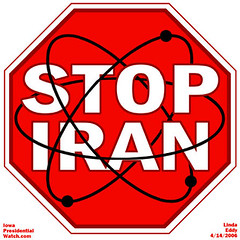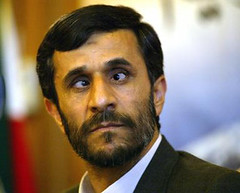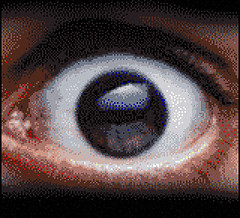THIS ARTICLE IS A MUST READ FOR ANYONE STILL NOT FAMILIAR - IN DEPTH - WITH THE PROBLEMS BEHIND ISLAMIC JIHAD AND NEW MOSLEM POPULATIONS IN THE WEST.
Here is a fascinating interview with a Danish psychologist who has worked with over a hundred young Muslim criminals incarcerated in a Copenhagen prison. He reports on what factors makes Muslims different and why they cannot successfully integrate into western societies. His book Among Criminal Muslims: A Psychologist' Experience from a Copenhagen Municipality, is scheduled to be published in English, soon.
The interviewer is Jamie Glazov of Front Page Magazine (FP). There is some very important information here.
(Hat tip Al Rowley)
FP: Nicolai Sennels, welcome to Frontpage Interview.
I would like to talk to you today about your experience working with young criminal Muslims in a Copenhagen prison. Let’s begin by talking about how you got into your line of work.
Sennels: Thank Jamie.
Well., many people think that I took the prison job because I wanted to get a closer look at Muslim mentality, failed integration and Islam. But I did not. I was just looking for a job and having worked as a social worker taking care of teenagers for several years part time while studying at Copenhagen University to become a psychologist, it was natural for me to apply for a job involving juvenile offenders. I had no idea that seven out of ten teenagers in the average Danish youth prisons have a Muslim background. Since I was the first psychologist at the institution I was very free to develop my position as psychologist.
The main job was to find out the young peoples’ pedagogical and therapeutic needs and develop therapeutic methods fitted for those needs. And this I did and this is what my book is about. The unusual thing about my work is that I found out that my Muslim clients had certain psychological characteristics that my non-Muslim – mostly Danish – clients did not have.
They were all between 15 and 17 years old, most of them showed antisocial behaviour and a big part of both groups came from homes with a certain lack of emotional support. I guess nine out of ten were boys and though the main part came from less well functioning homes I also had many Muslim and Danish clients who’s parents and elder siblings were well educated, had normal jobs and so on.
I worked in the prison for a bit less than three years and had around 150 Muslim clients and 100 Danish clients. I conducted group therapies and individual therapies and with such a large amount of both Muslim and non-Muslim clients I had a relatively large background material for understanding and comparing their psychological development and the underlying conditions influencing this development. Normal “real” research projects of this kind – consisting of long and several qualitative interviews – most often only have 20-30 subjects as background material.
FP: Ok, so some of your conclusions?
Sennels: Well, one significant conclusion was that having been raised in a Muslim environment – with Muslim parents and traditions – includes the risk of developing certain antisocial patterns.
About two thirds of all teenagers accused for criminal actions in Copenhagen have a Muslim background. For years the explanation for this phenomenon has been that Muslims are discriminated against by Danish employers and are thus unable to find a job. The consequence is that Muslims are poor – and this poverty then gets the blame for the high crime rate among young Muslim men.
Alan note: does this not sound a bit reminscent of analysis of the "challenges" of African-American communities in the USA?)
As a humanist and psychologist I have to expose and oppose this faulty explanation. Explaining psychological development and complicated human mental and behavioural patterns by pointing on the amount of kroner, Euros or dollars rolling in to a person’s bank account every first bank day of the month is a very materialistic and two-dimensional view on the human being.
What is first of all deciding our actions is our own free will and motivation – which are first of all influenced by the emotional, cultural and in some cases religious frame that we grew up in.
It is easy to establish a statistical connection between poverty and criminal behaviour – but what comes first?
I saw a lot of young teenagers sowing the seeds for their own future un employment by not going to school, staining their criminal records and developing unattractive social habits such as aggressiveness, insecurity and lack of respect for authorities.
FP: Did you find any real differences between Muslims coming from different parts of the Muslim world?
Sennels: My experience from working with Muslims is that the culture developed under Islamic influence supports the development of certain psychological characteristics. I had Muslim clients from most of the Muslim world: most of the Middle East, Muslim countries in Africa, Pakistan and ex-Yugoslavia. I did not register any major differences between the mentalities between these countries. The only real importance deciding the impact of Muslim mentality was whether the client himself identified himself strongly as belonging to the Muslim society or not. There was a quantitative difference from the often less Islamic Muslims from e.g. ex-Yugoslavia and the clients from the Middle East who mostly identified themselves strongly as being Muslims.
By far the most of my 150 Muslim clients expressed strong loyalty to their God, Allah, and their prophet but less than half was actively practising Islam by doing their prayers, Quran studies etc. But there did not seem to be any difference between the actively practising group and the group that could be called loyal but passive believers. Seen from the therapy room, the mentality stemming from Islamic influence on the societies where it is the dominating value system is so strongly rooted in the culture that Muslims are influenced by its dogmas and values no matter if they pray five times a day and can recite the Quran or not.
FP: Draw for us a psychological profile of Muslim culture. How does it shape a human being’s mind and behaviour to grow up in such a culture?
Sennels: The most important characteristics that I found concerns aggression, self-confidence, individual responsibility and identity.
Concerning anger, it quickly becomes clear that Muslims in general have a different view on aggression, anger and threatening behaviour than Danes and probably most of our Western world.
For most Westerners, it is an embarrassing sign of weakness if people become angry. This view on anger is probably consolidated already in early childhood. I have been working as a school psychologist for several years and bullying is a continuous problem at the schools that I work in.
The interesting thing is that the children who are most likely to be the target of being bullied are the children that get angry the easiest. If people get angry we have a tendency to lose respect for them and in many cases we try to tease them to provoke them even more – with the pedagogical aim of helping the person to realize the childishness of his or her behaviour.
Trying to get one’s will by acting aggressively or using threats is seen as immature and our reaction is often to ridicule or simply ignore them. Thus, the shortest way to lose face in our Western culture is to show anger.
It is completely opposite in the Muslim culture. While most of my Danish clients who had problems with anger felt embarrassed about it, none of my Muslim clients ever seemed to understand our view on anger. I spent countless hours doing Anger Management therapy with both Danish and Muslim clients and hence I had very good opportunities to experience the cultural differences concerning this specific emotion, ways of handling it and reacting to it.
In Muslim culture, it is expected that one should show anger and threatening behaviour if one is criticized or teased. If a Muslim does not react aggressively when criticized he is seen as weak, not worth trusting and he thus loses social status immediately.
This cocktail of cultural differences has sparked the ongoing debate on free speech all over the world. The free world’s criticism and jokes about Islam is met with anger and threats of terror. When a Danish cartoonist shows the Muslims’ prophet with a bomb in his turban to illustrate the fact that Mohammed conducted dozens of massacres and called for global violent jihad against non-Muslims, the reaction of Muslim leaders and their followers was exactly to confirm Westergaard’s drawing: They responded with jihad on all possible levels – threats of genocide, terror, economical boycott, lawsuits and using democratic systems in our countries, EU and the UN to challenge and destroy our laws on free speech.
The wisdom and bravery of any child in any school yard to people using aggression to hide their own insecurity because of a simple drawing would lead to more jokes and logic as a mean to pedagogically point out obvious human weaknesses. Unfortunately most of our politicians are not as wise and brave as the average school child.
FP: Expand a bit on the differences between Muslim and Western cultures in terms of self-confidence.
Sennels: The concept of honor in the Muslim culture is – just like in the case with anger – opposite of our Western view. It is common in the Muslim culture to be exceedingly aware of one’s status in the group, other peoples’ view of oneself and any signs of any kind of criticism. The aggressive response to anything that can make one insecure is seen as an expression of honorable behaviour.
But what is honorable about that? What kind of honor needs to be defended by all means necessary – including the abolishment of women’s human rights, such as the right to pick their own sexual partners, clothes, husband and life style? What is honorable about anger and the lack of ability to ignore provocations and handle criticism constructively?
After listening to more than a hundred Muslim teenagers telling their stories about their feelings, thoughts, reactions, families, religion, culture, the life in their Muslim ghettos and their home countries, it became clear to me that to a Muslim such behavior is the very core of keeping one’s honor.
But seen through the eyes of Western psychology, it is all an expression of a lack of self-confidence.
According to our view, the base of being authentic and honorable is to know one’s strengths and weakness – and accepting them. The ability to think “your opinion about me, not mine – and mine counts to me” when provoked and being mature enough to handle criticism constructively is a source of social status in the Western world.
Unfortunately, the Muslim concept of honor transforms, specially their men, into fragile glass-like personalities that need to protect themselves by scaring their surroundings with their aggressive attitude.
(Alan note: as seen in gorilla chest thumping or short elephant purely threatening charges)
The show of so-called narcissistic rage is very common among Muslims. The fear of criticism is in many cases not far from paranoia. It is not without reason that self-irony and self-criticism is completely absent in the Muslim societies. Seen from a psychological perspective – whose aim is to produce self-confident, happy, free, loving and productive individuals; and not to please a hateful God or culture traditions – Muslim culture is in many ways psychologically unhealthy to grow up in.
FP: Ok and how does individual responsibility fit into all of this?
Sennels: To discuss individual responsibility, I need to first introduce the readers to the psychological term “locus of control.”
Locus of control concerns if people see their life mainly influenced by inner or outer factors. In our Western culture, we see inner factors as more important than outer ones. Our point of view, our way of handling our emotions, our way of thinking, our way of reflecting, our way of reacting is all seen as ways that we decide our own lives. We may not always be aware of the way we think etc. and a whole industry has appeared because of that fact. Indeed, psychologists, therapists, psychiatrists, coaches plus countless self-help books and magazines are overflowing in our societies and are all aiming at helping us to become aware of how we decide our own lives.
None of these things exists in the Muslim world. The few psychiatrists they have are often educated in the West and whatever psychology and pedagogy that exists in Muslim countries does not have root in the Muslim culture but are ideas imported from the West.
Thus, when a Westerner experiences problems he asks himself: “What can I change in myself/my life to become happier?” This mentality showed it self clearly among my Danish clients. It was deeply rooted in them that talking about oneself can be a way of finding better ways of handling one’s own life.
When having Muslim clients on my couch it was in most cases like having someone from another planet visiting me. Under normal conditions, Westerners and Muslims can communicate relatively easy – as long as it does not involve criticism. But in a setting where the whole concept is centred about that the Muslim client has to talk about his own feelings and thoughts because the psychologist thinks that it will help him to become more happy and able to live constructively, the “chain falls off the bike” as we say in Denmark.
They shake their heads: in which way can they become happier if they expose the weaknesses that they have been taught since birth to hide in order to retain their honor? No way, José. I finally managed to develop a therapeutic method that to a certain extent could address these cultural difficulties, but therapy and Muslim mentality will probably never become real friends.
An important aspect of this difference concerning locus of control is that people who see their own lives mainly guided by outer factors – a fearsome God, a powerful father, influential imams, ancient but strong cultural traditions – very easily develop a victim mentality.
It is thus not without reason that conspiracies and blaming the non-Muslims are so central in Muslim leaders’ rhetoric and politics. This victim mentality also dominates the mentality of Muslim immigrants, who often have a long row of demands for economic support and Islamization of our societies to satisfy their personal needs.
FP: Well it becomes pretty obvious why Muslims cannot integrate into our Western society. Crystallize the reasons for us.
Sennels: My experience is that you need three things to be able to integrate. You need to want it, you need to be allowed and you need to have the surplus. Very few Muslim immigrants fulfil these three criteria.
First we have to ask ourselves: why should Muslim immigrants want to integrate?
They can live their culture, receive enough money, and have a full functioning social life with their Muslim friends without even learning our language — or even working.
There is not really anything that makes it necessary to integrate.
Of course there exist immigrant Muslims who want to adapt to the lifestyle and mentality in their new country but they are very few.
In France only 14 percent of the millions of Muslim immigrants see themselves as “more French than Muslim.” In Germany only 12 percent of Muslims identify themselves as more German than Muslim.
A survey in Denmark showed that only 14 percent of the Muslims living here can identify themselves as being Danish and democratic minded. My experience from my Muslim clients is that they do not see their Muslim identity as compatible with leading a Western life style. Being a Muslim also means that you see yourself as very different and actually as a better person than non-Muslims. This mentality easily leads to apartheid and racism.
This is probably the reason that even though Muslim immigrants are more than five times as violent as ethnic Danes – according to crime statistics - three out of four victims of violence are Danish.
The second criteria – being allowed to integrate – is also not very common. There is an exceedingly strong social control in the Muslim society.
Everybody is keeping an eye on everybody and if someone does not follow the cultural or religious codex they are met with strong criticism and risk to be excluded from their society – often even from their own family. In worst case – and there are many of those – specially Muslim women - live under a constant death threat that keeps them from entering our Western life style that includes such human rights as to pick one’s own sexual partners, clothing style, friends, religion and life style overall. Most of my Muslim clients saw their religious and cultural background as the height of civilization and morality – leaving it would be seen as a kind of cultural and religious apostasy by their kinsmen. Such acts often have severe consequences in not only gangs like Hells Angels and other tribal communities but also – and specially – among Muslims.
Finally, it takes a lot of personal surplus to integrate into another culture. It involves changing a part of one’s identity from belonging to one group into belonging to a group with completely other cultural values and traditions.
It is not just like changing a bad habit such as quitting smoking – integration goes much deeper concerning the individual’s psychology. I met a few Muslim girls who as part of Western inspired teenage rebelling wanted to integrate and did not care that they were not allowed. Those girls did not posses the personal surplus and ended up in complete identity crises, going too wild, doing drugs and having random sex with all kinds of strange men etc.
For these reasons I am completely convinced that Muslim integration will never happen to the necessary extent.
FP: What is your view of the future of Europe in terms of the skyrocketing Muslim population?
Sennels: We are in the historical embarrassing situation that we have invited millions of people to our continent that do not want to integrate and are also not able to.
Since the integration of Muslims will never happen – a fact I think that has already been proven years ago – we will end up with a significant part of our population that are actively working to Islamize our societies.
There exist both Muslims and non-Muslims that see this Islamization as Islamic jihad – but it is more than that: it is human nature.
People who do not feel at home where they live will naturally strive to change their surroundings.
Muslims attempts to Islamize our societies have just begun — as they are feeling stronger and stronger in power and numbers. This process is pushed forward by Muslim leaders inside and outside Europe and helped on its way by a kind of collective cowardice called Political Correctness.
The World Economic Forum published a huge survey in 12 Muslim and 12 non-Muslim countries in their report “Islam and the West: Annual Report on the State of Dialogue, January 2008.” The report in general shows a great amount of distrust between the two groups of countries and discloses strong feelings of enmity.
The last question in the survey is: “Do you think violent conflict between the Muslim and Western worlds can be avoided or not?”
The report shows that a majority of the populations in all 24 countries believed that such a conflict can be avoided. But at the same time a majority of the 22 countries think that “the interaction between the Muslim and Western world is getting worse.”
The majority of people still haven’t lost their hope but at the same time a majority see this hope getting smaller and smaller.
As Muslim immigrants push for Islamization and the original Europeans increasingly feel being exploited and threatened by growing and still more violent Muslim communities, a continent wide civil war might become unavoidable.
We are already on our way to get our own European Islamic Gaza Strips where non-Islamic authorities are met with flying stones and angry crowds while Islamic authorities such as imams, groups of elderly men and home made Sharia courts, are free to exercise their power.
Such developments are very alarming and should be confronted with large amounts of police, strict laws, and cuts on economic support for families having more children than the country’s average and demands that Muslim organizations and leaders reform their version of Islam.
My guess is we will see more dead police men and kidnappings as a mean to negotiate the release of imprisoned Muslim religious or gang leaders, terror bombs, economical and practical support from Muslim countries to Muslim communities here in the West.
Economic and police resources are already being drained by the many consequences of Muslim immigration and the need for profound reforming of our welfare system and for involving the army is inevitable in the long run.
The feeling of safety and social coherence is already long gone in many parts in hundreds of European cities as a result of Muslims’ antisocial behaviour and enmity towards non-Muslims.
As I see it, the greatest danger is that the common European will fall into strong negative feelings and that the population and our authorities will feel pressed to compromise our own humanistic values in order to overcome the catastrophe.
The sooner we handle the problems the greater the chance is that we can keep our important and unique human values.
FP: It’s all pretty depressing what political correctness and the Left has achieved in engendering and overseeing this Muslim infiltration of our society.
The Left wanted to destroy its host society and it shrewdly figured out how to do so through the weapon of “multiculturalism.” Talk a bit about where this might not all be hopeless, how those of us who care about or society’s values can fight back. What can we do to avoid the surrender that the West is engaged in as we speak?
Sennels: Well Jamie, first let me stress that our “surrender” so to speak would not be enough.
Only mass conversion would satisfy the rules of the Quran and its preachers.
And even though Muslim leaders continuously claim that the only way to ensure global peace and morality is for all of mankind to become followers of their prophet, I am not so sure: Muslim countries are definitely less peaceful and morality concerning free speech, human rights and respect for human life is clearly less existent under Islamic rule than anywhere else.
Besides my suggestions mentioned above, the Western world has to put a complete halt to Muslim immigration and non-Western immigrants who did not already receive a citizenship.
They should either fulfil a long row of criteria concerning integration or leave the country. Permanent citizenships to Muslim refugees should not be possible.
I would like to mention that the average price for having an asylum seeker living in Denmark is 33,000 Euros (45.000 US dollars) a year. According to UNHCR the price for helping a refugee in a refugee camp close to his own country is 33 Euros (45 US dollars).
We should in general make it so unpleasant and the economic disadvantage so big that the consequences of non-integration would motivate resident Muslims to emigrate – preferably to a Muslim country where they can live in a culture where they already know the language, culture and religion and do not live under the pressure to integrate and do not feel stigmatized by anti-immigration organisations and Islam critics.
(Alan note: Arab countries have refused to accept Moslem "Palestinians" refugees into their countries, give them citizenship and integrate them so they are harsher in their Islamic actions than the West has been, even with this radical set of suggestions).
Responsible lovers and protectors of our Western culture should make an effort to write letters to the editors, and internet bloggers have to make sure that the information that our main stream medias consciously avoid to publish gets known. We need to create a UN exclusively for democratic countries and the EU’s power to force immigration onto its member states should be taken away.
Oil should only be used for transport, while heating should be replaced by green energy and nuclear power – to avoid dependency on Arab oil.
FP: Nicolai Sennels, thank you for joining us. You have shared some dark realities and warnings with us. I pray the West will eventually gain the will and capacity to defend itself.
(Alan note: self-deprecating humor and teasing existed and to some extent remains alive in Iran among the populace from engrained millennia of pre-Islamic culture).
Subscribe to:
Post Comments (Atom)














No comments:
Post a Comment